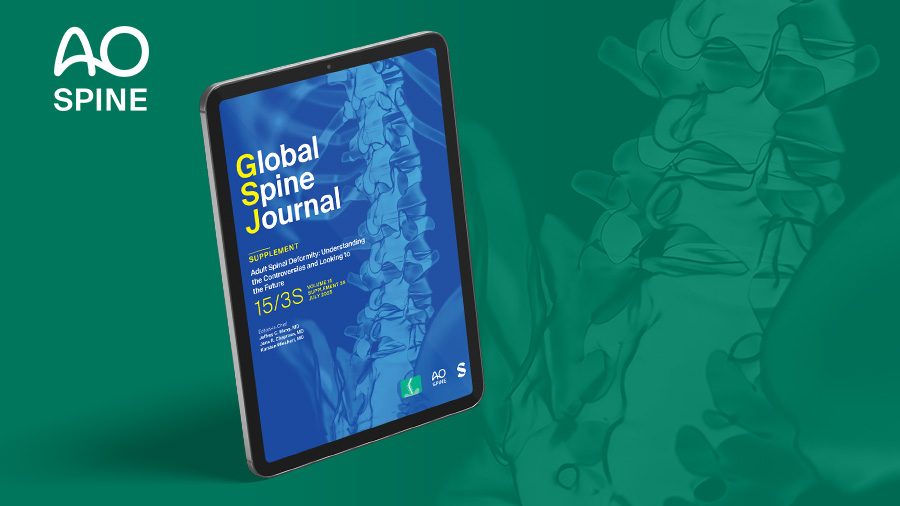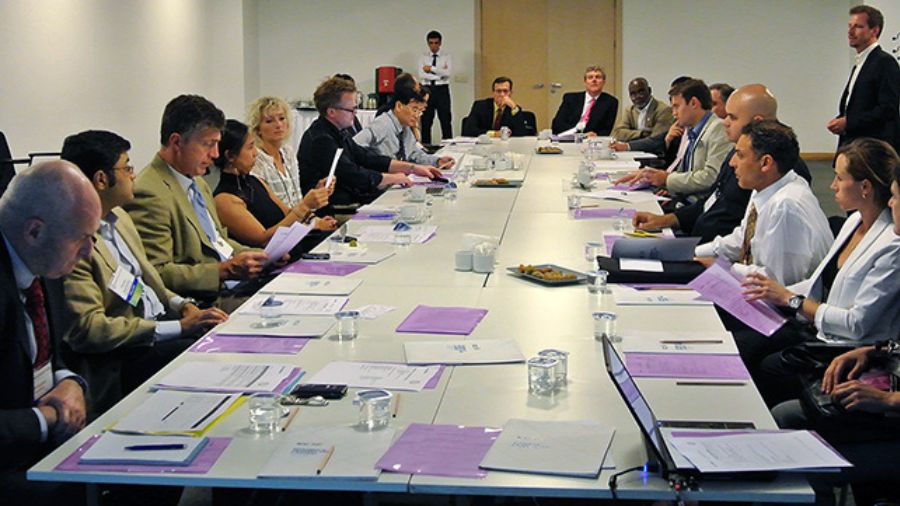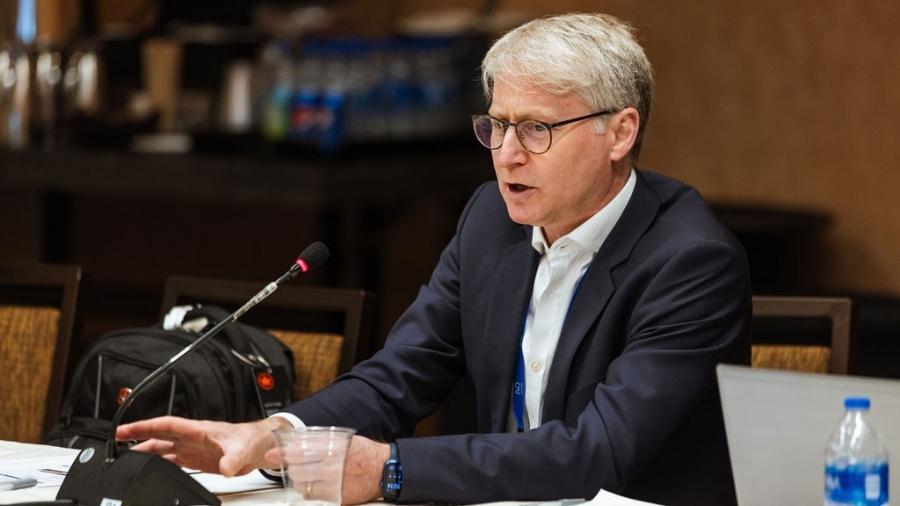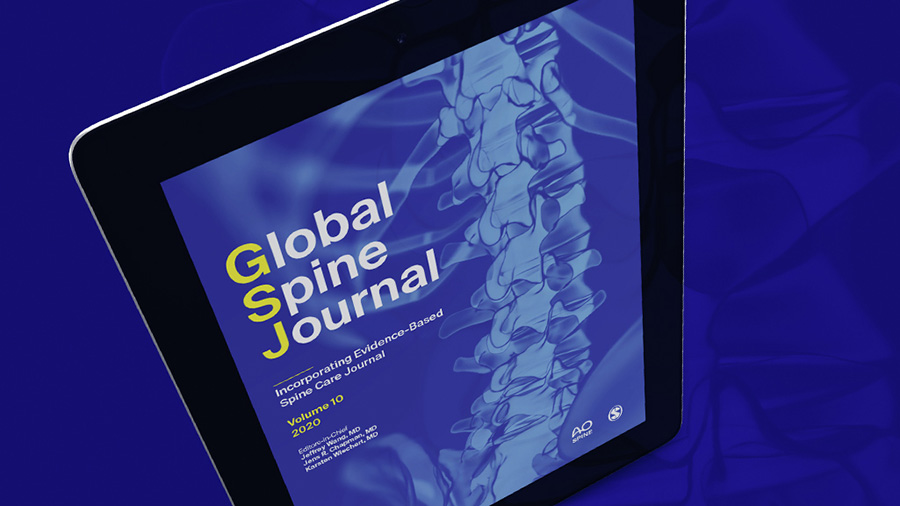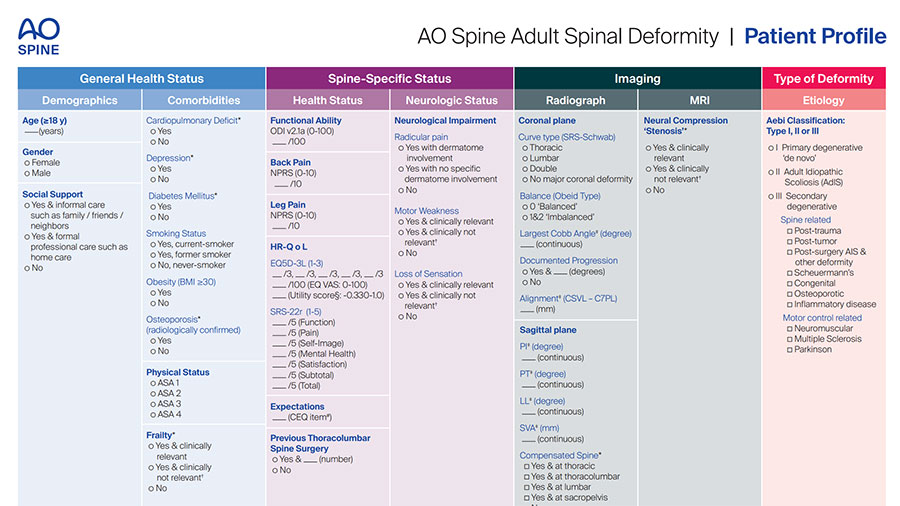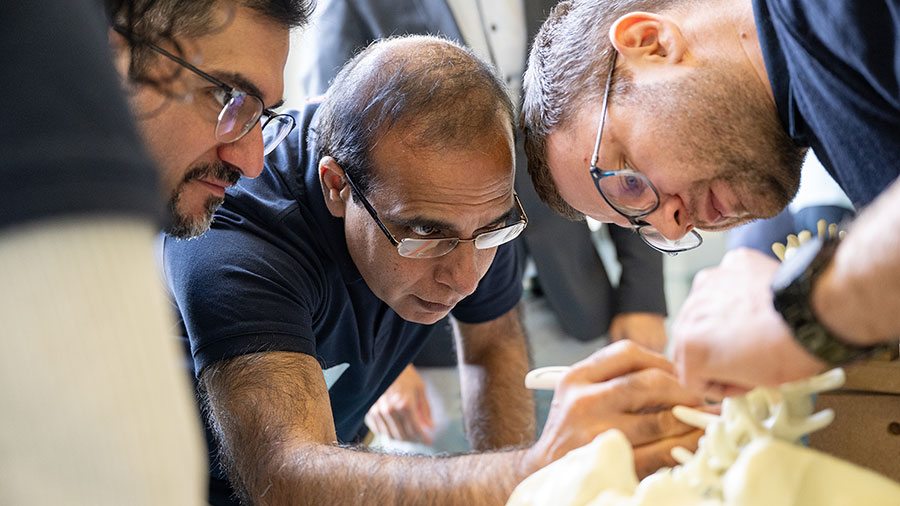Adult Spinal Deformity Surgery: Where we are, what we know, and where we need to go
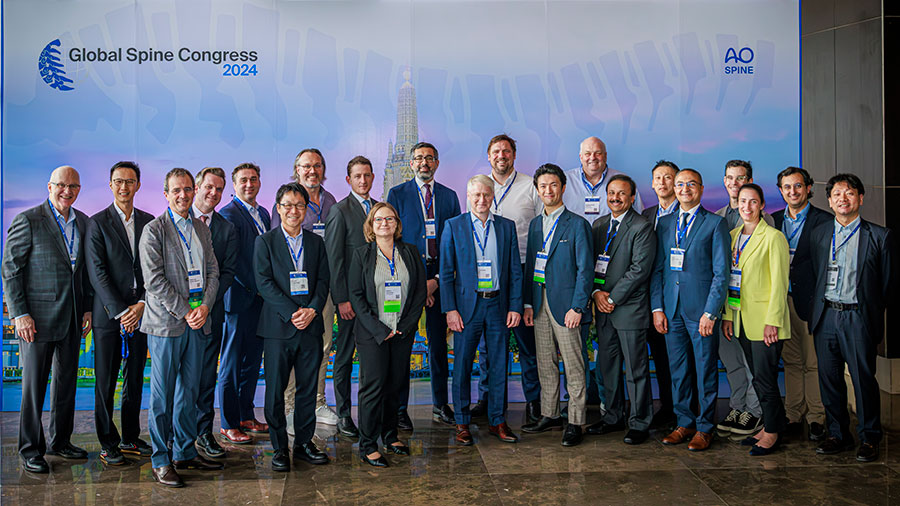
The Global Spine Journal (GSJ), in collaboration with the AO Spine Knowledge Forum Deformity, proudly announces the release of a new special Focus Issue dedicated to one of spine surgery’s most complex and controversial areas: Adult Spinal Deformity—Understanding the Controversies and Looking to the Future.
Despite it being a common indication for surgery, decades of clinical experience, and rapid technological innovation, ASD surgery continues to carry high complication rates. In response, this GSJ Focus Issue led by Guest Editors Stephen Lewis and Lawrence Lenke brings together global experts to take a deep dive into ASD care—analyzing current trends, evaluating risk-benefit balances, and identifying gaps in knowledge that demand further exploration.
This Focus Issue on Adult Spinal Deformity:
- explores challenges, innovations, and controversies in adult spinal deformity (ASD) surgery
- reviews current trends, risks, alignment goals, and highlights gaps in ASD care needing better evidence and consensus
- offers insights to optimize patient selection, surgical planning, and outcome evaluation in complex ASD cases
- calls for research on PROMs vs. radiographic goals, standardization of techniques, and novel tech integration.
New GSJ Focus Issue unveils critical insights into Adult Spinal Deformity surgery
Knowledge Forum (KF) Deformity Chairperson Stephen Lewis,MD reminds that the treatment of ASD patients starts long before the surgery itself. "Assessing a patient’s comorbidities and optimizing them for surgery is a key component in achieving the desired surgical results. Recognizing and addressing modifiable risk factors prior to major surgery can potentially limit or prevent adverse events, or reduce their severity."
This issue provides a overview of such critical subjects, including:
- Timing and magnitude of surgical intervention
- Intraoperative planning, neuromonitoring, and decision-making
- Pre-operative medical optimization, including comorbidity and bone health management
- Alignment strategies and the challenge of achieving durable correction
- Pelvic fixation techniques, blood management, and minimally invasive approaches
- Emerging roles for robotics, navigation, and augmented reality in ASD surgery
Personalized care and outcome evaluation
Guest Editor and KF Advisory Board member Lawrence Lenke, MD highlights the significant variability in ASD's clinical presentation, radiographic features, and treatment indications and selection. "This variability leads to a multitude of different techniques and outcomes and is associated with substantial controversy when considering treatment options and expected outcomes. We hope that this Focus Issue will shed the light on current best practices, help to guide towards answering some of the most controversial questions in the field, and stimulate further pursuit of knowledge in the areas in order to decrease treatment variability which typically results in more predictable outcomes."
Recognizing the heterogeneity of ASD, the Focus Issue emphasizes the importance of patient stratification and individualized treatment pathways. It addresses how factors like comorbidities, symptom duration, and deformity characteristics can guide the choice between limited and extensive surgeries, with the goal of improving outcomes while minimizing risk.
The issue also confronts persistent controversies in outcome measurement: Should alignment success be judged by radiographic metrics or patient-reported outcomes (PROMs)? Are global or segmental alignment parameters more predictive of surgical success? These are just a few of the vital questions explored.
Standardization of indications and techniques remains elusive in ASD care. This Focus Issue critically examines debates around rod selection, fusion strategies, osteotomy choices, and complication mitigation—especially in the context of junctional failures, infections, and pseudarthrosis. By highlighting the most pressing challenges and areas of disagreement, it aims to chart a clearer path forward for clinicians, researchers, and healthcare systems.
A must-read for spine surgeons and researchers
With a multidisciplinary, international authorship and an evidence-based approach, this Focus Issue is an essential resource for anyone involved in the treatment or study of adult spinal deformity. It not only summarizes current best practices, but also lays the groundwork for future research and innovation in this highly variable and technically demanding field.
Explore the full issue in the latest Special Edition of the Global Spine Journal.
Contents of the Focus Issue:
- Adult Spinal Deformity Surgery: Where we are, what we know and where we need to go
- Determining the Magnitude of Surgery in Patients with Adult Scoliosis: A Systematic Review of the Role of Limited Fusions
- A Narrative Review of Symptom Severity and Duration in Nonoperative vs Operative Patients with Adult Spinal Deformity
- Preoperative Surgical Planning and Intraoperative Considerations for the Treatment of Adult Spinal Deformity Surgery
- Osteoporosis in Adult Patients Undergoing Spinal Reconstructive Surgery: Associated Complications and Management
- The association between comorbidities and medical complications for adult spinal deformity surgery: What factors have the greatest impact on adverse events and outcomes?
- Patient Reported Outcome Measurements in Adult Spinal Deformity: A Narrative Review
- Blood Management and Conservation During Adult Spine Deformity Surgery
- Alignment Goals in Adult Spinal Deformity Surgery
- Pelvic Fixation in Adult Spinal Deformity: Complications, Controversies, and Future Directions
- Identification and Management of Neurologic Complications in Patients Undergoing Adult Spinal Deformity Surgery
- Perioperative Medical Complications in Adult Spine Deformity Surgery: Classification and Prevention Strategies
- Late Complications and Adverse Events in Adult Deformity Surgery: A narrative review of event types, prevalence, strategies for avoidance and information gaps.
- Minimally Invasive Surgery in Adult Spinal Deformity and the Future
Guest Editors of the Focus Issue:
You might also be interested in:
AO Spine Knowledge Forum Deformity
A global clinical research group transforming spinal deformity care through impactful research.
Global Spine Journal
AO Spine’s official scientific journal is an open access, peer-reviewed journal focusing on the study and treatment of spinal disorders.
AO Spine Adult Spine Deformity (AO ASD) Patient Profile
An overview that allows physicians to systematically consider the factors that could contribute to optimal management of the condition.
AO Spine Curriculum Courses
AO Spine deformity courses as well as the Global Spine Diploma modules provide skills that spine surgeons need for the future.


